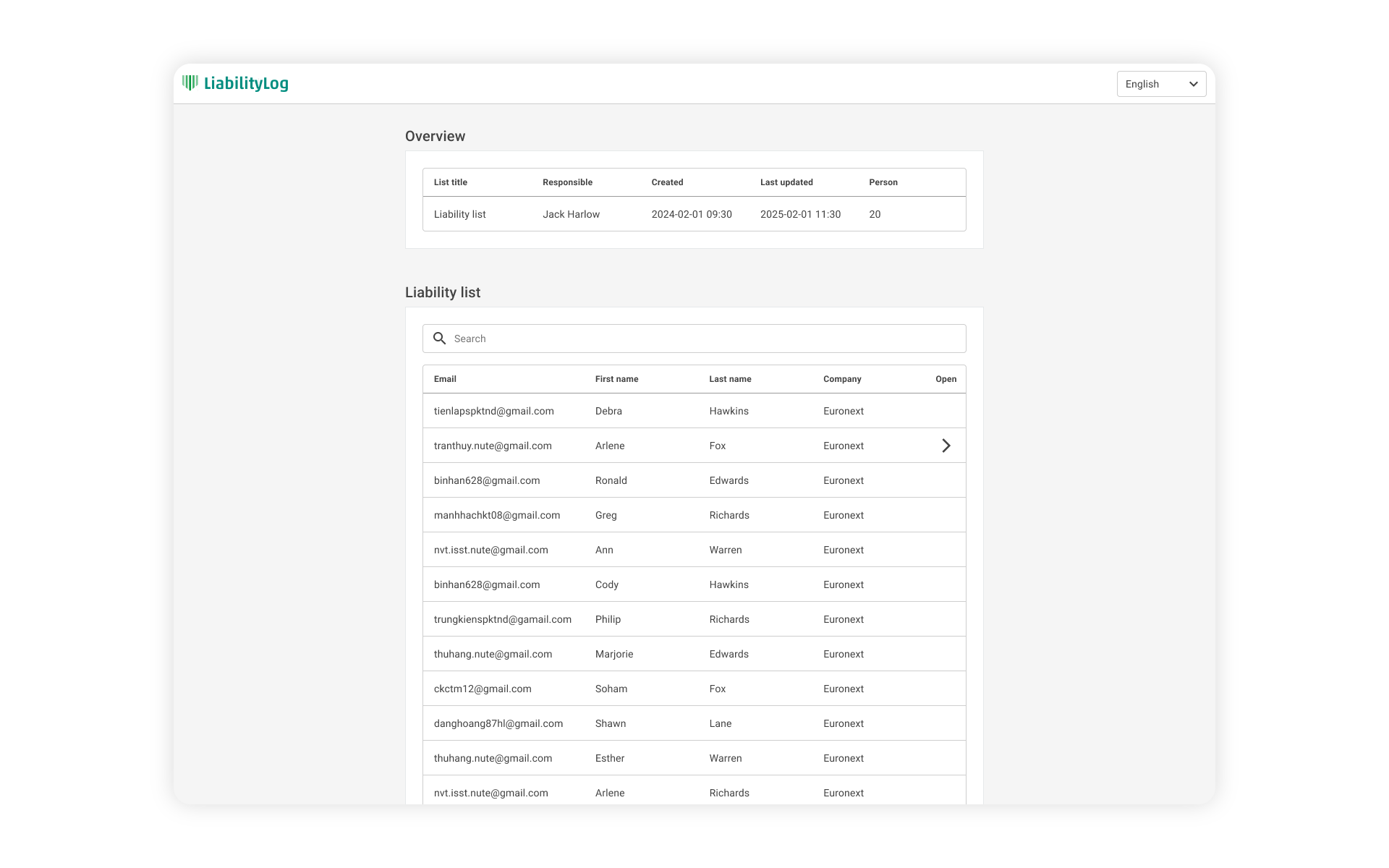REGISTER OF INTERESTS
Request a demo for LiabilityLog
Expertly manage your organisation's declarations of interests.
- Digitise your register of interests by automating the entire process from submitting a declaration of interest to verifying the publication.
- Reduce the need for manual coordination and document handling.
- Adhere to the Municipal Act (410/2015) and Finnish Municipalities Association guidelines.
- Applies to municipalities and other public organisations (e.g., education and health authorities) that have reporting obligations under specific laws or other relevant legislation
ASK FOR A DEMO NOW!

Request a demo
Trusted by nearly 100 municipal organisations











Under the Finnish Municipal Act (410/2015), elected council members and other municipal body members (e.g., boards and committees) must publicly declare their interests. Section 84 requires disclosure of all financial interests, positions in companies or organisations, and other affiliations that could influence decision-making. This ensures transparency, good governance, and public trust.
A register of interests with all the features you need to make your process more efficient.
Electronic submission
With LiabilityLog, users can submit declarations of interest electronically. This not only significantly enhances efficiency but also minimises errors often associated with manual data entry. These declarations are stored digitally, which makes them easy to retrieve for future reference or a compliance audit.


Automated notifications
LiabilityLog's automated notification feature is designed to streamline communication between the municipal organisation and the individuals required to declare their affiliations. It eliminates the need for manual follow-ups, as all necessary notifications and reminders are sent out automatically via email.
Easy & secure login
The platform offers a simple yet secure login process, where users can authenticate themselves with mobile certificates (2FA). This feature not only enhances security by validating user identities but also ensures a smooth user experience and a quick and hassle-free login process.

Optimise the registration of interests
- Fully digital process
- Easy and reliable authentication
- Secure, digital storage of declarations
- Implementation in under a week

Easy compliance with a user-friendly register of interests
-
Base Licence
- Onboarding
- Support during office hours
- Unlimited admins included
- Distribution tool for public sharing
